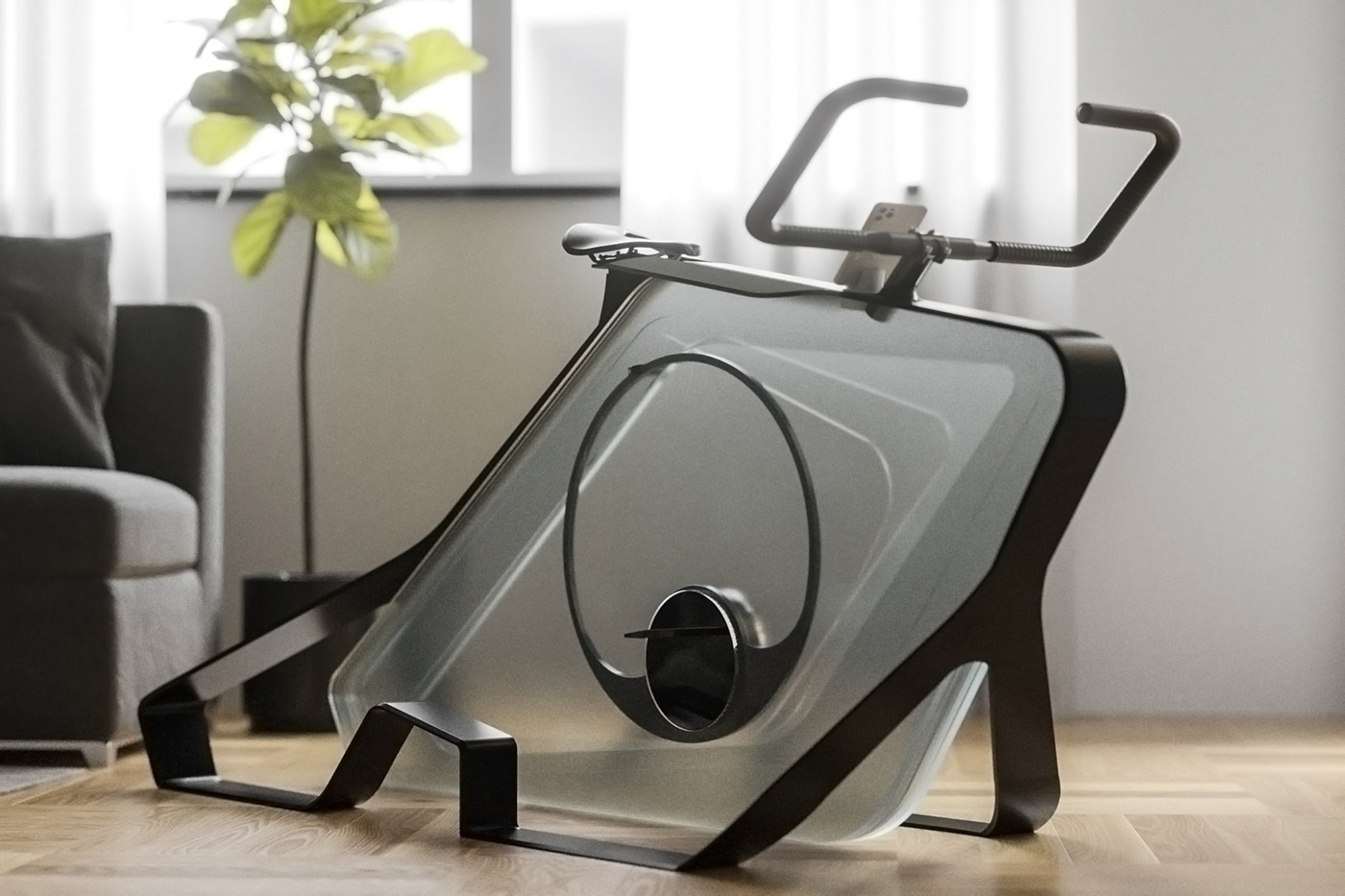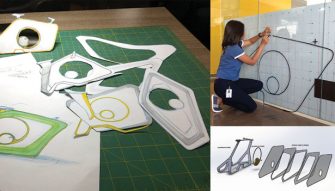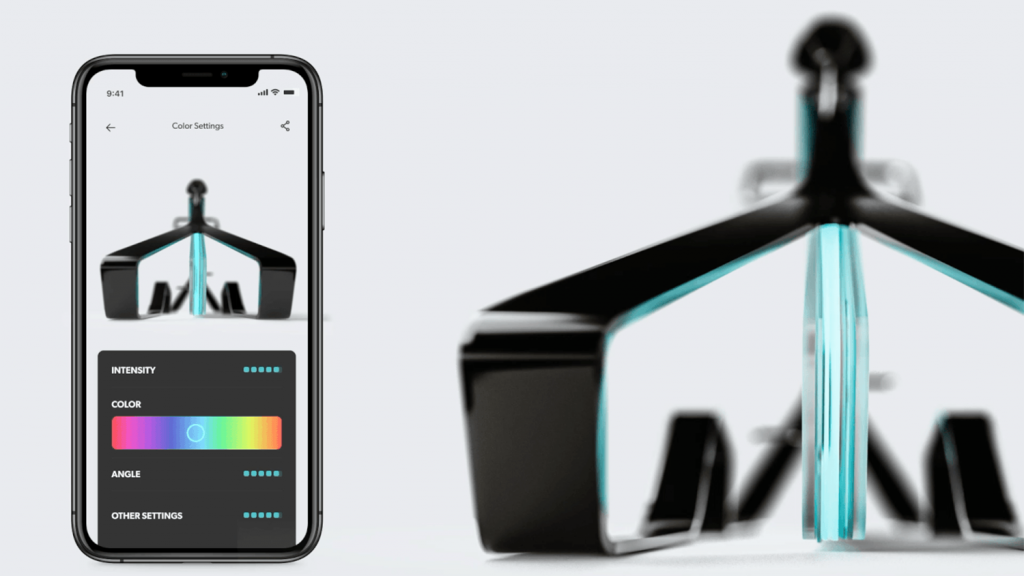Analogy Design Bangalore looked to tackle home fitness with an exercise bike that literally lights up the room.
As urban living spaces become smaller, having fitness equipment around the home means there’s more chance of it being used as a luxury towel rail than for breaking a sweat.
Analogy Design, in Bangalore, India, looked to tackle this problem with a concept, the Shard Exercycle, that makes its form more than occasional use gym kit that conveys exercise routines with less distraction – through its system of light.
“The concept was to design a sculptural object that could be the centre piece of the living room and not an eyesore and at the same time provide focus to the user with the use of a minimal interface without the need for a digital screen to understand their work out routine,” explains Analogy Design industrial designer Arun Kumar.
“The USP of this exercise bike, is that it uses light to guide your exercise routine, no sounds, no digital screens.”

Using repeatable and unique light patterns and intensity of glow, the rider knows where they are within the exercise program. Through the connected app, the bike’s paddle pressure and the seat adjustment can be adjusted to suit custom exercise routines and select challenge race routes around the world.
Kumar also states that the lights also serve a function of keeping a rider motivated and make their training session more engaging. “The light on the bike sync with audio instructions, helping a user focus more on their exercise rather than statistics.”
The design process started with brainstorming a pool of ideas to make a typical exercise bike more sophisticated and smarter, before an evaluation process filtered down the designs.
With the selected ideas, the design team at Analogy started with a tape drawing to figure out a 1:1 proportion, before concept development sketching in ProCreate, and initial surface modelling in Rhino3D.

The design moved into Solidworks to add the mechanical and lighting elements, and help judge the balance of the right materials in the right places to maintain a sculptural quality.
The UX design ran in parallel to this before the design teams began “stitching both the physical and digital experience together”.
The product was awarded a Merit award at the International Bicycle Design Competition as one of the most comprehensive connected products of the submissions, going beyond mere functionality.






